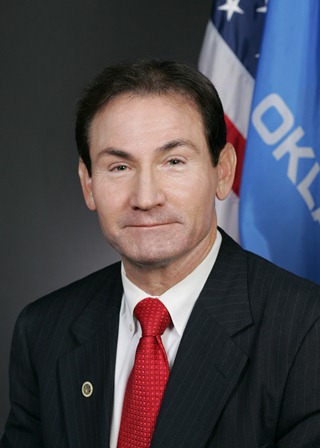Senate approves uninsured motorist bill
 Sen. Ron Sharp
Sen. Ron Sharp
Under current state law, the Department of Public Safety (DPS) suspends the license of anyone found driving without insurance. On Wednesday, the Senate approved Senate Bill 260, by Sen. Ron Sharp, to require such offenders to provide proof of insurance to DPS in the form of an SR-22 form before their suspension for driving without insurance can be lifted.
“People are not following the law. A recent study found that Oklahoma’s uninsured motorist rate is twice the national average making it the worst in the nation,” said Sharp, R-Shawnee. “This measure will hold citizens accountable. If they’re not going to follow the law then there will be consequences and they won’t be able to drive until they start following the law and purchase vehicle insurance.”
A 2014 study by the Insurance Research Council estimates that nearly 26 percent of vehicles on Oklahoma roads are operating without insurance, totaling approximately 721,000 vehicles. The national average is just under 13 percent.
An SR-22 form is a certificate issued by an individual’s insurance company affirming that the person has auto insurance that meets the state’s minimum requirements. SB 260 requires that the SR-22 be maintained with DPS for three years. Anyone who fails to maintain their SR-22 with DPS will have their driving privileges suspended again until proof of insurance is re-filed.
At least 36 states use some form of SR-22 reporting as a tool to combat uninsured motorists.
The bill also states that when an insurance company has certified an insurance policy with an SR-22, the policy can only be terminated if the company provides notice to DPS within ten days after termination.
“Current law is allowing offenders to simply buy insurance and drop it within days just to get their license back. This bill ensures that insurance companies let DPS know when policies are dropped so that they can make sure those individuals aren’t driving without insurance,” said Sharp.
SB 260 provides exemptions in which DPS must waive the SR-22 filing requirement including if the person dies or is incapacitated or if the person surrenders his or her vehicle registration.
Sharp explained that uninsured motorists have a negative fiscal impact on insured motorists as well as the state overall.
“Law-abiding motorists unfairly have to pay the price through higher rates for those who break the law and drive without insurance,” said Sharp. “Our state’s high rate of uninsured motorists also has a negative effect on our state’s budget and pension systems because of the lost premium tax dollars.”
The Oklahoma Insurance Department estimates, based on the average statewide premium for minimum auto liability coverage and the premium tax rate of 2.25 percent, that if the uninsured motorist rate were reduced to 15 percent (still above the national average), Oklahoma would see just over $7.7 million in additional premium tax revenue.
SB 260 will now move to the House for further consideration.
 Oklahoma Senate
Oklahoma Senate

